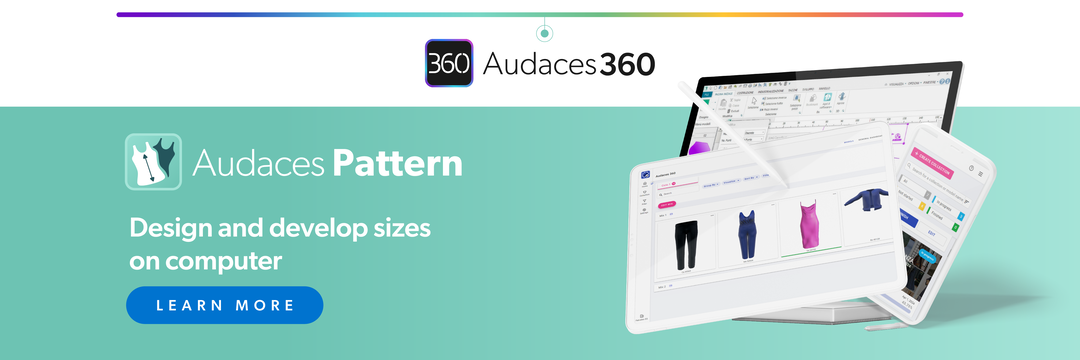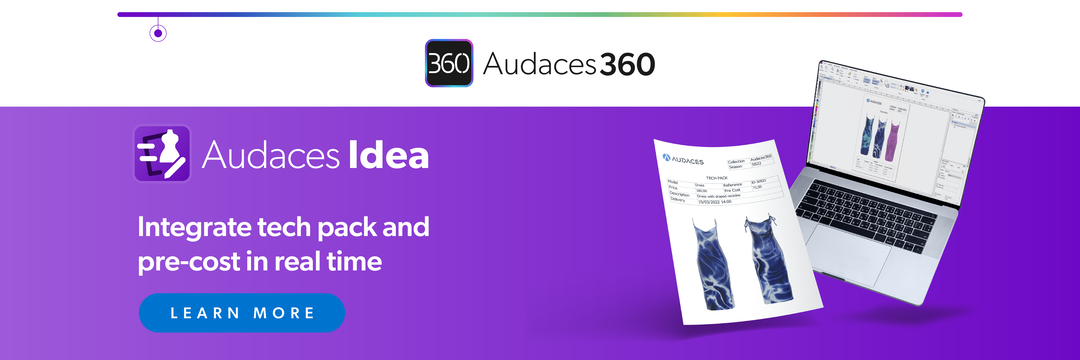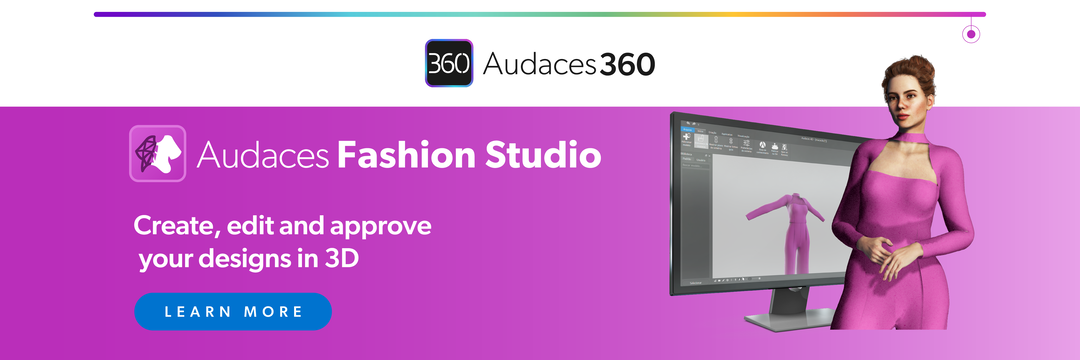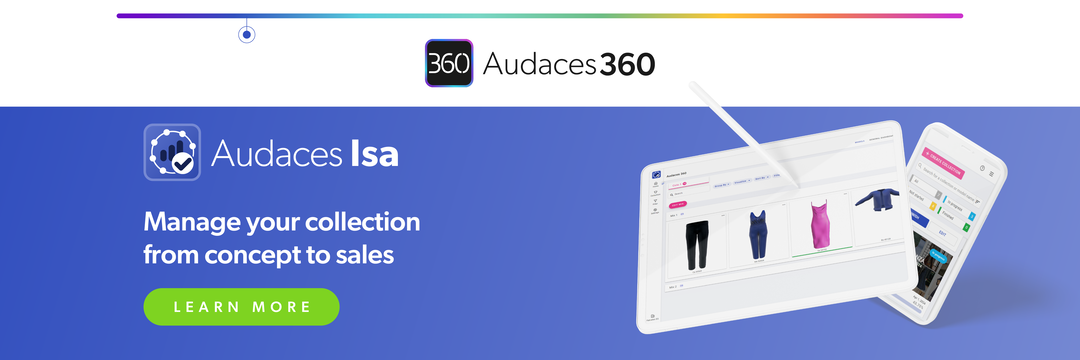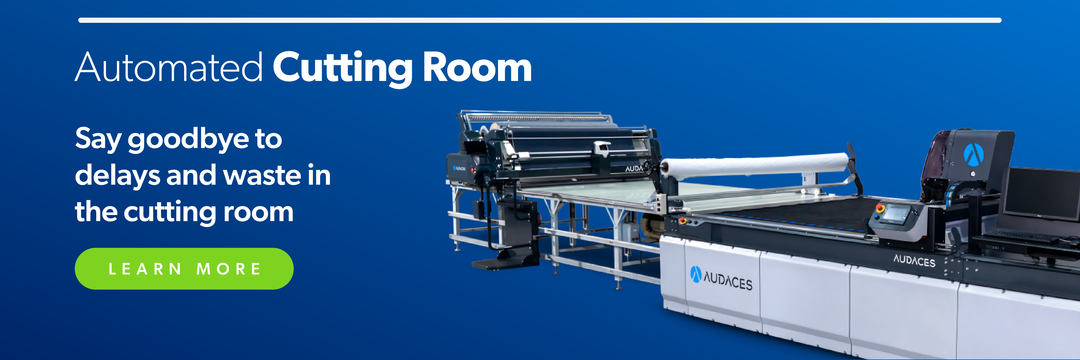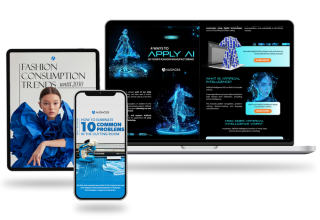Summary:
- The Web3 represents the next stage of the internet’s development, and promises to create a more inclusive, competitive, and independent online environment;
- This advancement is bringing about a paradigm shift in various industries, including the digital fashion business model;
- Several technologies can propel your company into the Web3 era. Experience the possibilities with Audaces360 multi-solution. Get the free trial now!
According to a recent report by KPMG, the demand for luxury goods in the metaverse could potentially reach $50 billion by 2030.
While the possibilities of the metaverse are the subject of much speculation in enhancing online experiences, the fashion industry is witnessing the rise of new players and technologies.
One such technology is Web3, which holds the promise of creating a more inclusive, competitive, and independent network, empowering individuals to reclaim their data and fostering novel avenues for creativity and monetization.
Curious to learn more? Keep reading!
Sumário
Web3: what is it?
Web3, also known as Web 3.0, envisions the next evolution of the Internet centered around decentralization and blockchain technology.
In the early days of Web 1.0, the content was static and controlled by providers, while Web 2.0 allowed users to generate content, but major tech giants often dominated and controlled the user-generated data (referred to as “Big Tech” or “Gafa” – Google, Apple, Facebook, Amazon).
Web 3.0 aims to revolutionize this approach. Content and services will no longer be hosted on centralized servers and platforms; instead, they will be distributed uniformly across the network.
Devices will connect not to central servers but to distributed registers on the network, enabling access to information without reliance on any specific company’s data server.
What is the impact of Web3 on fashion consumption?
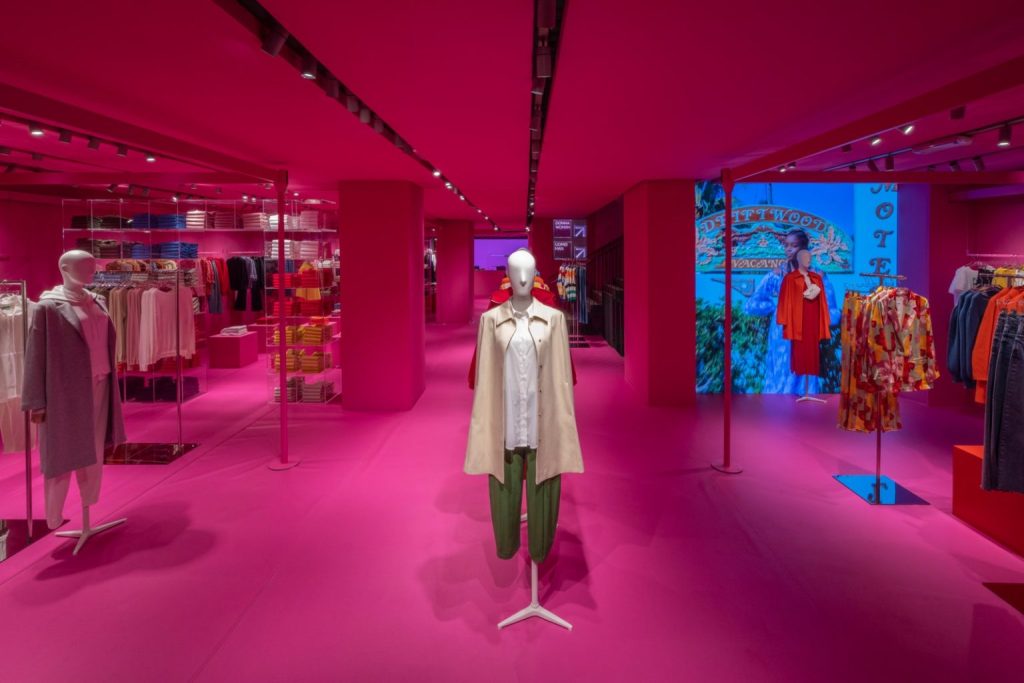
The rise of Web3 and its integration with Web 2.0 technologies is revolutionizing the digital fashion business model.
According to Allied Analytics, the global market for digital fashion is projected to grow from $498.7 million in 2021 to $4.8 billion by 2031.
Blockchain and Web3 technologies already hold a significant 33% share of this market and are expected to continue leading until 2031.
Prominent brands have already generated over $250 million in revenue through NFTs and cutting-edge technologies like 3D printing, artificial intelligence, augmented and virtual reality, and blockchain. Understanding this context is crucial to determine how it can benefit you and your business.
Learn more: Why fashion innovation drives the market? 7 trends to consider
Key advantages of Web3 for fashion companies
But what are the concrete advantages that Web3 can offer companies beyond generating wealth? Let’s explore them together!
Supply chain traceability and transparency
The development, democratization, and increasing prevalence of technologies such as blockchain, which are fundamental to the growth of Web3, provide a secure and technologically advanced approach to determining the origin of raw materials.
Blockchain operates as a decentralized transaction registry, ensuring a safe and reliable peer-to-peer network without intermediaries.
Widespread adoption of blockchain technology would enable comprehensive tracking of both tangible goods (fibers, fabrics, packaged products) and intangible assets (intellectual property, patents, copyrights, industrial processes) throughout the entire supply chain.
This heightened level of traceability ensures greater control and transparency across the supply chain.
Blockchain component tracking
One of the most significant developments of Web3 in Italy is the thriving market of NFTs (Non-Fungible Tokens), unique digital assets verified on a blockchain, which have gained immense popularity in recent years.
When purchasing a fashion item, buyers receive a digital certificate that serves as proof of their exclusive ownership of the article.
This certificate also allows the inclusion of valuable information about the item’s history and the provenance of its components, ensuring transparency and authenticity throughout the fashion supply chain.
Learn more: Learn how to drive business growth in fashion with NFTs
Sustainable and ethical clothing production
Web3 introduces new purchasing and selling strategies that aim to reduce the fashion industry’s environmental impact.
Both companies and consumers are increasingly focused on sustainability, utilizing digital versions of their wardrobes to monitor clothing usage, promote increased usage of clothes, sell, or share items they no longer wear, and manage garments through selling or renting.
This practice already exists but is expected to grow significantly with advancements in display technologies and the widespread adoption of so-called physical clothing and its digital twins.
Empowering customization in fashion
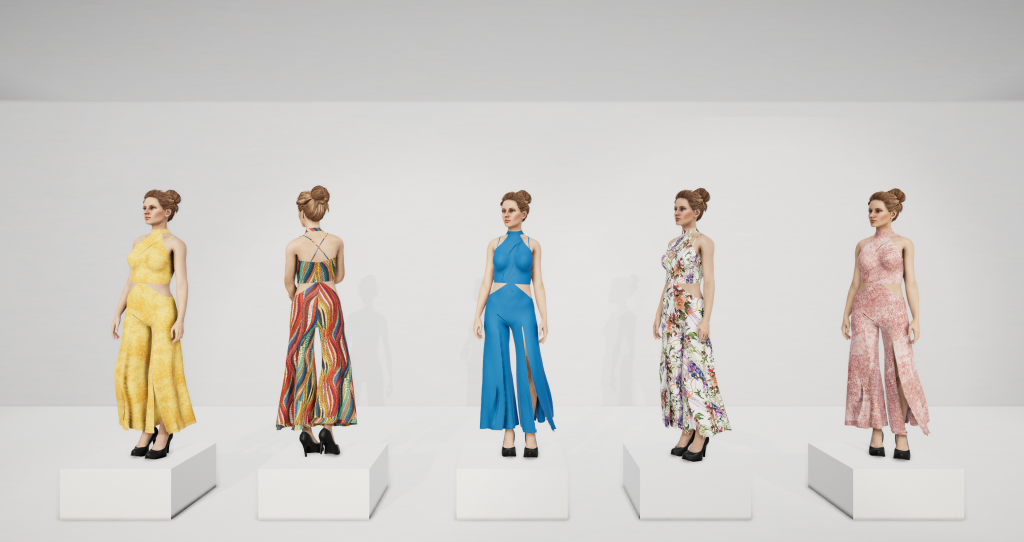
In the virtual world, offering a high degree of customization to consumers is now possible.
Brands can enable users to personalize their virtual garments by choosing colors, prints, and fits based on their preferences.
Furthermore, advancements in digital visualization technology allow consumers to create avatars that can be used across various platforms, streamlining the purchasing and customization process of physical clothes.
For example, users can try on clothes virtually to simulate the true fit, enhancing the overall shopping experience.
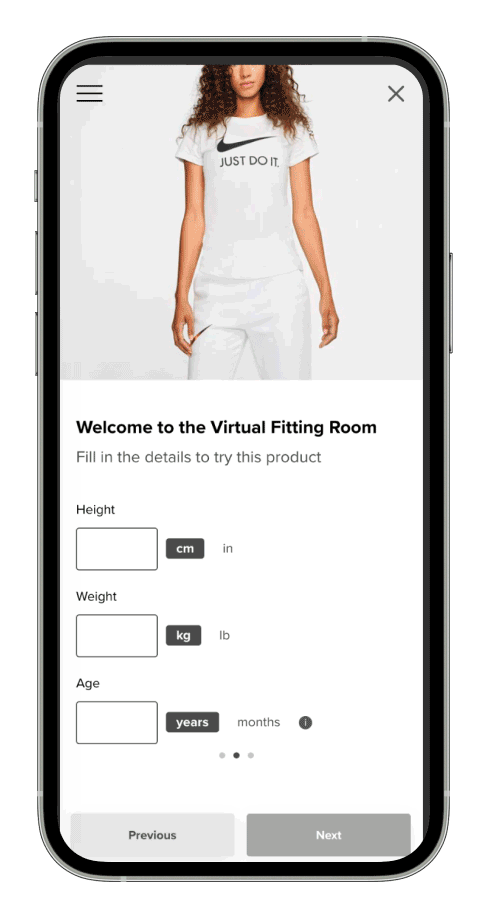
Learn more: Discover how immersive fashion can benefit your apparel business
Delivering unique and personalized products to consumers
With the shift in data ownership, consumers may alter their interactions with brands.
They can choose to disclose information about their purchase habits to brands in exchange for personalized style advice, creating a more tailored experience.
Simultaneously, fashion houses can harness collective creativity by providing digital tools for both creators and consumers to explore and design unique products together.
What are the Web3 applications in fashion production?
Web3 holds numerous potential applications for companies, regardless of their size. Here are some examples:
‘Twinning’ physical and digital items
Brands can create “twin” garments, available in both digital and physical versions, enabling clients to dress up their avatars in virtual clothing and vice versa.
Certain tokens can demonstrate ownership and authenticity of the purchased garments.
Learn more: What is phygital fashion and how to integrate the physical and digital in apparel
Cross-platform looks
Web3 allows consumers and brands to design distinctive looks that are compatible across all platforms, making them easily sellable and transferable, thanks to blockchain technology
Digital wardrobe
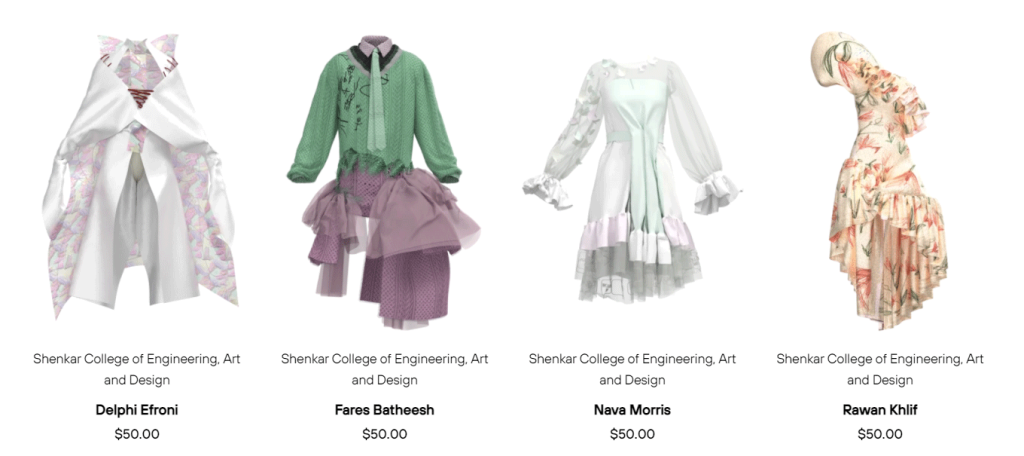
With a focus on sustainability, consumers can utilize digital versions of their wardrobe to share, resell, or trade clothes with friends and family, fostering an eco-friendlier approach to fashion.
Enhanced acquisitions
The ability to realistically view the fit of garments, such as offering virtual fitting rooms online, significantly boosts customer satisfaction and, as a result, leads to increased purchases.
Learn more: Explore the fashion metaverse and make your collection stand out
Unleash your collections in Web3 with Audaces Fashion Studio
Web3 opens up boundless possibilities for digital design enthusiasts, and Audaces Fashion Studio is here to help you thrive in this exciting universe.
Our technologies are designed to tackle the challenges of both the present and the future, empowering you to bring your own collections to life in the world of Web3.
Audaces Fashion Studio
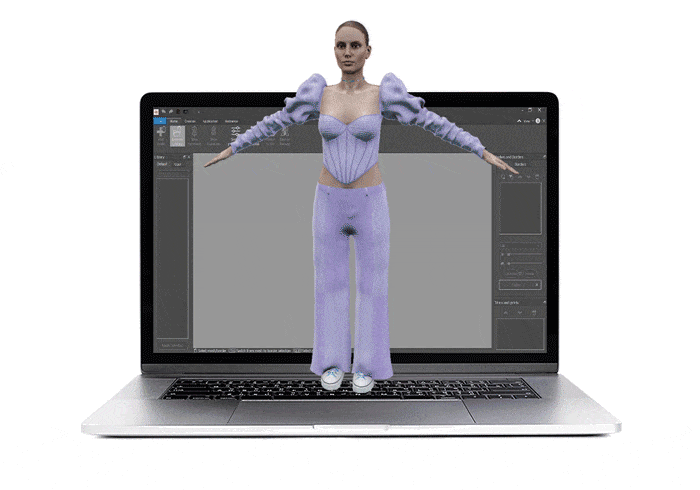
Audaces Fashion Studio is a versatile fashion design software utilized by industry professionals to create and develop clothes and accessories. It offers a range of tools for designing 2D and 3D models, making size and aspect ratio adjustments, simulating fabrics, and visualizing the final garments.
The software’s exclusive features enable fashion designers to create high-resolution and intricate patterns, ideal for transforming them into NFTs with exceptional digital content quality. Moreover, Audaces Fashion Studio aids in crafting digital garment prototypes, presenting models clearly and attractively to potential buyers of digital fashion.
Looking to create your first fashion NFT? Before delving in, it’s crucial to understand how the metaverse can benefit you and stay up-to-date with the latest trends.
Download our free e-book to explore the possibilities at your disposal:
FAQ
Web3, or Web 3.0, envisions the next evolution of the Internet based on decentralization and blockchain technology.
Web3 offers higher traceability and transparency in the supply chain, utilizes blockchain to track component authenticity, promotes sustainable practices, and enables greater customization of products.
Technological tools, such as creating digital models for NFTs, serve as valuable allies for fashion companies in Web3.


